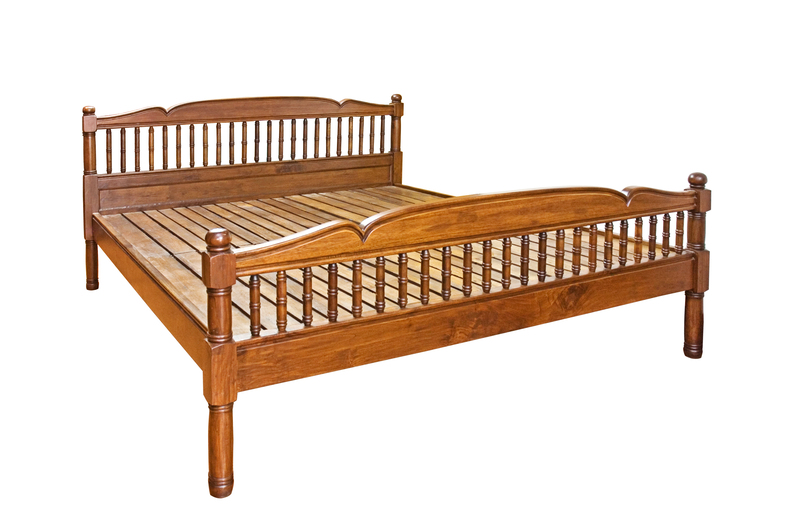Lower Your Household Costs by Tackling Bulky Waste Wisely
Are you searching for smart ways to manage your household budget, reduce your environmental impact, and keep your living space organized? One effective strategy is to focus on handling bulky waste efficiently. From old furniture and appliances to mattresses and broken exercise machines, bulky waste can quickly clutter your home and wallet if not managed wisely. In this comprehensive guide, we'll walk you through the best methods for lowering your household costs by tackling bulky waste wisely--with actionable tips, clever ideas, and eco-friendly solutions.
What is Bulky Waste?
Bulky waste refers to large household items that cannot fit into standard waste containers or bins. These often include:
- Furniture (sofas, mattresses, armchairs, tables, cabinets, wardrobes)
- Large appliances (refrigerators, washing machines, dishwashers, stoves)
- Electronics (televisions, computers, old printers)
- Garden waste (tree branches, lawnmowers)
- Exercise equipment (treadmills, stationary bikes, weights)
These items are often too large or heavy to be collected with regular household waste and may require special disposal methods. Inefficient handling of bulky waste can lead to high disposal costs, environmental fines, or even legal trouble if dumped illegally.

How Bulky Waste Impacts Your Household Costs
Improper bulky waste management can cause unnoticed expenses, clutter, and inconvenience. Here's how:
- High disposal fees: Many local councils and waste collection services charge premium rates for bulky waste pickups. These fees can quickly add up, especially during major cleanouts or renovations.
- Storage costs: Paying for extra storage or keeping unused items might seem harmless but takes up valuable space you could use better--or even forces you to rent storage units.
- Pest & health risks: Accumulated bulky waste can attract pests or become a safety hazard, potentially resulting in costly repairs or health bills.
- Decreased property value: An overfilled garage, yard, or basement can reduce your home's value and appeal should you choose to sell.
By tackling your bulky waste responsibly, you can save money, reclaim space, and enjoy a more pleasant, efficient home.
Strategies to Lower Household Costs by Handling Bulky Items Wisely
1. Audit and Identify Bulky Waste
The first step in lowering costs is identifying which bulky items you no longer need. Walk through your entire home--including basements, attics, garages, sheds, and storage rooms--and make a list of all the bulky waste candidates. Consider whether you use, need, or value each item. If it's broken, outgrown, or surplus to requirements, it's a candidate for removal.
2. Reuse and Repurpose Where Possible
Think twice before discarding! Many bulky items can be repurposed or given new life. Here's how:
- Refurbish furniture: Sanding, painting, or reupholstering old chairs and tables can save you money on new purchases.
- Creative conversions: Turn an old ladder into creative shelving, or use dresser drawers as under-bed storage.
- Appliance spare parts: Salvage working components (such as shelves or motor parts) for use in other household projects.
By extending the life of large household items, you reduce waste and costs simultaneously.
3. Sell or Donate Bulky Items
A sustainable, budget-friendly way to dispose of bulky items is to sell or donate them. You may be surprised how much demand exists for used furniture, appliances, or workout equipment in good condition!
- Online marketplaces: List your items on eBay, Facebook Marketplace, Craigslist, or local classified ads.
- Charity organizations: Many charities offer free pickup for reusable furniture and white goods. Benefits: saving you transport effort and providing support to communities in need.
- Garage sales: Organize a neighborhood sale and invite others to join--turn clutter into cash!
4. Leverage Municipal Bulky Waste Collection Services
Most towns and cities offer scheduled bulky waste collections either seasonally or by appointment. Take advantage--but plan ahead:
- Consolidate items: Combine items for collection to minimize the number of pickups (and associated fees).
- Know your limits: Municipal services often have weight or item number restrictions--be sure your bulky items qualify.
- Look for annual free pickups: Many councils offer complimentary collection days for large waste--mark your calendar!
5. DIY Transport to Recycling Centers
If you have access to a suitable vehicle, transporting bulky waste yourself to recycling or waste centers can save you pickup fees. Remember:
- Separate recyclables: Some centers accept specific materials (metals, electronics, mattresses) for free.
- Check local guidelines: Ensure your items meet the requirements to avoid unexpected charges.
6. Hire an Affordable, Responsible Removal Service
Some waste removal services specialize in bulky item collection. Compare quotes and ask:
- Do they recycle, donate, or simply send to landfill?
- How are prices calculated? (by item, weight, or volume?)
- Are there discounts for larger or combined loads?
Pro tip: Split the cost with neighbors by organizing a joint pickup--reducing fees for all involved.
Hidden Ways Bulky Waste Management Saves You Money
A. Improved Organization Reduces Duplicate Purchases
When your home is free of unnecessary bulky items, it's easier to keep track of what you have. This minimizes the risk of buying duplicates ("I thought we needed a spare chair!"), avoiding wasted spending.
B. Preventing Structural Damage
Heavy items stored inappropriately can cause damage to floors, walls, or basement infrastructure--leading to expensive repairs. Regularly decluttering bulky waste ensures only safe loads remain.
C. Lower Insurance Premiums
Some insurance policies consider the accumulation of waste (especially flammable or hazardous items) as an increased risk, potentially pushing premiums upward. Decluttering and proper disposal can support your claim for lower rates.
D. Supporting Zero-Waste and Eco-Friendly Incentives
Municipalities increasingly reward eco-conscious households--through rebates for bulky recycling, voucher systems for donations, or reduced landfill levies for separated waste. Check if your community offers such incentives.
Environmental Benefits of Proper Bulky Waste Disposal
Sensible management of large household waste isn't just financially wise--it contributes to a greener planet:
- Reduces landfill pressure: Less waste dumped means lower greenhouse emissions and leachate risks.
- Supports recycling industries: Old metal, wood, textiles, and plastics can become raw materials for new products.
- Prevents pollution: Keeping hazardous items out of the landfill protects soil, water, and air from contamination.
Tips for Preventing Bulky Waste Build-Up (and Costs!)
-
Buy quality, not quantity:
Invest in well-made furniture and appliances--these products have longer lifespans and are less likely to end up as bulk waste quickly. -
Plan purchases smartly:
Only buy what you need, and measure spaces before purchasing large items to avoid size mismatches. -
Regular "stuff audits":
Set a yearly or seasonal date to assess and clear out bulky waste, preventing surprise removals and expenses later. -
Borrow, rent, or share:
For items you rarely use (like party tables or exercise machines), consider renting, borrowing, or joining a sharing community to save on purchase, storage, and disposal costs. -
Follow manufacturer's guidance for lifespan:
When possible, opt for products with modular parts or guaranteed recycling at end-of-life.
Frequently Asked Questions about Bulky Waste and Household Costs
How often should I clear my bulky waste?
At least once a year is wise for most homes, or when you notice large items becoming unused. Moving house or renovating is also an ideal opportunity for a bulky waste audit.
Are there free bulky waste disposal options?
Many local authorities offer annual free pickups or accept certain bulky items (like e-waste or whitegoods) for free at recycling centers. Donating items (in usable condition) also eliminates disposal costs.
Can I be fined for dumping bulky waste illegally?
Absolutely. Illegal dumping is a serious environmental offense. Fines can be hundreds or thousands of dollars--far more than any legitimate disposal fee.
Is recycling bulky waste better than landfill?
Whenever possible, recycle or repurpose large household items. Landfill should be a last resort. Check local services for recycling options specific to furniture, appliances, and electronics.

Case Study: Real-Life Savings from Smart Bulky Waste Management
Consider the following example:
Jane and Mark moved into a 30-year-old home with years of accumulated bulky waste: broken furniture, old refrigerators, and multiple worn mattresses. Instead of scheduling multiple private removals (quoted at over $800), they:
- Donated usable furniture--picked up free by a local charity
- Sold two items via an online marketplace, earning $120
- Transported recyclable appliances and mattresses to the municipal recycling center themselves--no fee required
- Combined their remaining items for a single council pickup--just $65
In total, they cleared their house for under $65, earned some extra cash, and helped reduce landfill--simply by approaching the problem strategically and making use of donation, recycling, and free services.
Conclusion: Cut Costs Smartly by Tackling Bulky Household Waste
Effective bulky waste management isn't just a matter of cleanliness--it's a concrete way to lower your household expenses, organize your home, and support a more sustainable environment. By actively deciding what to keep, donate, sell, recycle, or dispose of, you can:
- Reduce expensive removal and storage fees
- Unlock extra value from items you no longer need
- Protect your property (and wallet) from unnecessary costs
- Act as a responsible, eco-friendly citizen
Start today: audit your home, explore your disposal options, and choose the solutions that cut costs and clutter most effectively. Tackle your bulky waste wisely and make your home (and budget) more manageable than ever before!
```